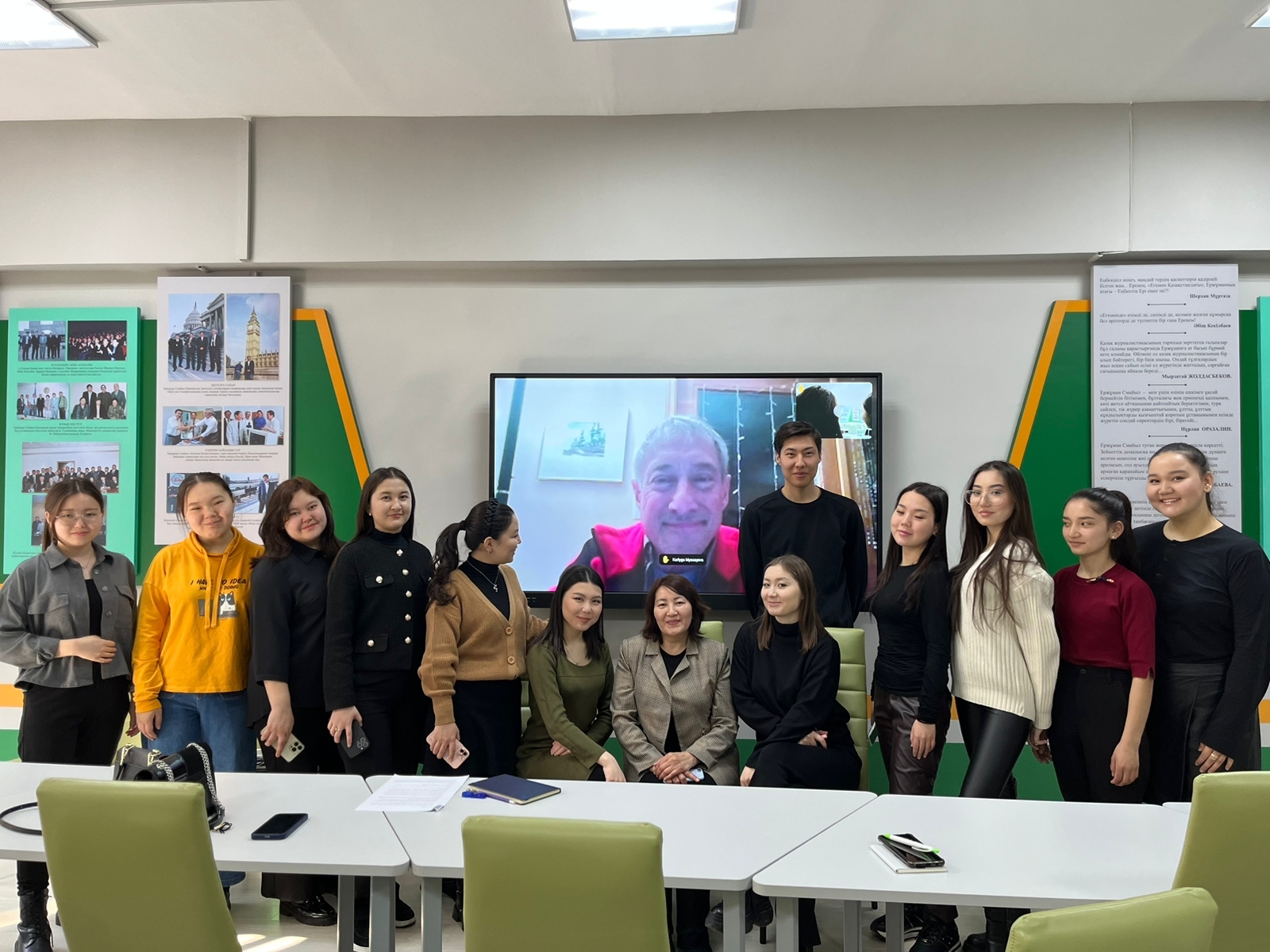Knight Center director Eric Freedman recently guest lectured to students at Al-Farabi Kazakh National University in Almaty, Kazakhstan.

Eric Freedman pictured with students at Al-Farabi Kazakh National University.
In his lecture, Freedman discussed the important role of environmental journalism in public life. He discussed how the stories environmental journalists produce often have a direct influence on government policy and public health. Environmental journalists are often required to communicate complex topics in a way that is easy to understand for general audiences, making them essential for the public’s understanding of environmental issues.
Despite its critical importance, environmental journalism faces many challenges. Speaking with students at Al-Farabi Kazakh National University via Zoom, Freedman outlined six major challenges faced by those working in field.
Access to information and places:
Journalists face challenges when it comes to accessing information and locations that might help them in their reporting. Despite many countries requiring some level of transparency, public officials and private organizations may still seek to limit access or information to protect their own interests.
In the case of natural disasters, it’s important that journalists are on the ground to report on events in a timely manner. This can be difficult when disasters take place in remote or isolated areas. Covering such events requires a great deal of time, money and hard work.
Credibility and Bias:
While journalists strive for accuracy in their reporting, they rely mostly on sources that inevitably have some level of bias. This is why it is critical that journalists interview and seek voices and perspectives from a variety of sources in order to produce stories that are fair and balanced.
Trust:
Declining trust in the press and media is another challenge faced by journalists today. Political criticism of journalists and the media, as well as misinformation spread through social media and other avenues, have contributed to the public’s declining trust in the press, creating new challenges that must be overcome by journalists.
Scientific and Technical Language:
Environmental journalists are responsible for explaining complex environmental issues in ways that are easy to comprehend by those who are not versed in the scientific and technical language used by those who work in the field. To illustrate this point, Freedman offered an example of a chemical spill. Specialists may provide the journalists with chemical names that mean nothing to the average person reading about the event. Journalists must instead communicate the dangers of those chemicals in a way that is easily understood by their audiences.
Science Deniers:
Environmental journalists must also grapple with science deniers, even when many of the topics covered by environmental journalists involve scientific evidence and facts. This small percentage of people who refuse to believe in science can often undermine journalists’ attempts to bring important information to the public’s knowledge. The COVID-19 pandemic illustrated how these groups can put the general public at risk of contracting the illness through their refusal to follow safety recommendations or get vaccinated against the virus.
Environmental Journalists in Trouble:
Freedman concluded his lecture by sharing the stories of some environmental journalists whose safety was jeopardized for their coverage of environmental issues. Journalists have faced threats to their physical wellbeing and risked imprisonment in pursuit of their stories. One example is Bartholomaus Grill, a reporter for German news outlet Der Spiegel. Grill and his photographer received death threats and were detained and interrogated while investigating a rhinoceros smuggling ring operating in Mozambique. In Canada, journalist Miles Howe was arrested while covering a controversial plan to drill for natural gas near land belonging to the Elsipogtog First Nation.
In addition to this lecture at Al-Farabi Kazakh National University, Freedman has previously lectured at other universities in Kazakhstan, KIMEP University in Almaty and East Kazakhstan State University in Oskemen.
By Finn Hopkins
